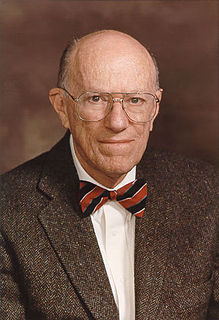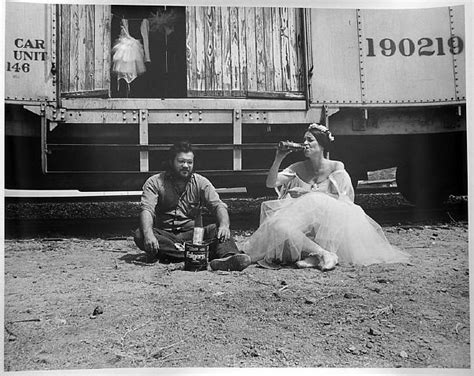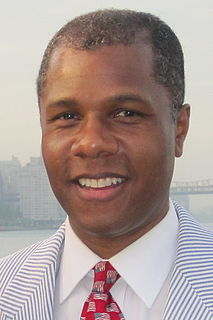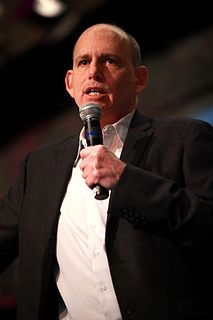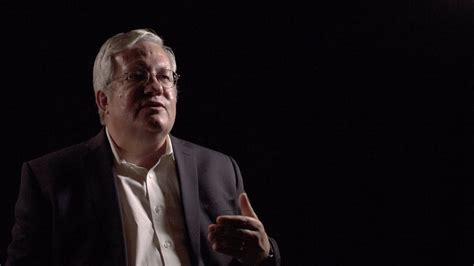Top 178 Affluent Quotes & Sayings - Page 3
Explore popular Affluent quotes.
Last updated on November 19, 2024.
To believe that man's aggressiveness or territoriality is in the nature of the beast is to mistake some men for all men, contemporary society for all possible societies, and, by a remarkable transformation, to justify what is as what needs must be; social repression becomes a response to, rather than a cause of, human violence. Pessimism about man serves to maintain the status quo. It is a luxury for the affluent, a sop to the guilt of the politically inactive, a comfort to those who continue to enjoy the amenities of privilege.
Do we, mad as we all are after riches, hear often enough from the pulpit the spirit of those words in which Dean Swift, in his epitaph on the affluent and profligate Colonel Chartres, announces the small esteem of wealth in the eyes of God, from the fact of His thus lavishing it upon the meanest and basest of His creatures?
I want kids to be able to escape failing schools that trap them. And it's an unequal trapping of children. The most affluent find a way to escape. They move to a great suburban district or send their kid to a private school. The people who are trapped in the worst schools that have been terrible often for half a century? Those are the poorest kids.
Tax reduction has an almost irresistible appeal to the politician, and it is no doubt also gratifying to the citizen. It means more dollars in his pocket, dollars that he can spend if inflation doesn't consume them first. But dollars in his pocket won't buy him clean streets or an adequate police force or good schools or clean air and water. Handing money back to the private sector in tax cuts and starving the public sector is a formula for producing richer and richer consumers in filthier and filthier communities. If we stick to that formula we shall end up in affluent misery.
The Declaration of Independence, the Constitution, and the Bill of Rights were all written by affluent white males, but to discuss them in any meaningful way, you have to bring in the roles of African Americans - the enslaved blacks - and the roles of women, who were scarcely acknowledged by those documents. You have to discuss why slavery wasn't outlawed by the Constitution, why women weren't given the votes. The Bill of Rights isn't about dead white males anymore, and it's not just about live white males either; it's about every minority group that exists.
For the present system to work, poor people must be excluded from the innovation, because if they could get access at an affordable price, then affluent people would find ways to buy it cheaply as well - and then the innovator would be poorly rewarded and introductions of new medicines would decline.
We must understand what our idea of wealth is. Is it just about more buildings, more machines, more cars, more of everything? More and more is death. In the most affluent societies in the world, for example in the United States of America, a significant percentage of the population is on anti-depressants on a regular basis. If you just withdraw one particular medication from the market, almost half the nation will go crazy. That is not wellbeing. Generally, an American citizen has everything that anyone would dream of.
More and more Americans feel threatened by runaway technology, by large-scale organization, by overcrowding. More and more Americans are appalled by the ravages of industrial progress, by the defacement of nature, by man-made ugliness. If our society continues at its present rate to become less livable as it becomes more affluent, we promise all to end up in sumptuous misery.
You can think of the Health Impact Fund as a mechanism that would keep the benefits and burdens of pharmaceutical innovation for the affluent roughly as they are while massively reducing the burdens presently imposed upon the poor. This sounds like magic. But it really works because the current system is not Pareto efficient. It's a system that generates hundreds of billions of dollars in litigation costs and deadweight losses that HIF-registered medicines would sidestep. By avoiding these losses, the HIF reform can bring improvements all around - including for pharmaceutical innovators.
For never has there been, in modern times, such a Homeric world, where so much value is pinned onto the utterance of name! Entire conversations, entire lives, are devoted to the act of naming people, and in Pakistan the affluent would be totally devoid of talk if they were unable to take names in vain. Caste and all its subclassifications are recreated every day in the structure of a conversation that knows which names to name.
Thrice blessed are they whose early years are spent in some countryside. The flowering and withering of the seasons, and every exquisite sound and sight - every lane, and pasture, and green corners and gnarled hollows everywhere, make them affluent with a treasure which neither change nor chance can steal away.
And having thoughtlessly polluted our streams and rivers, we have seen in recent years a rapidly growing market for bottled drinking water. I am sure that some will say that a rapidly growing market for water is "good for the economy," and most of us are still affluent enough to pay the cost. Nevertheless, it is a considerable cost that we are now paying for drinkable water, which we once had in plentiful supply at little cost or none at all. And the increasing of the cost suggests that the time may come when the cost will be unaffordable.
"...piling up zeros in your bank account, or cars in your driveway, won't in and of itself make you successful. Rather, true success is based on a constant flow of giving and recieving. In fact, if you look up affluence in the dictionary, you'll see its root is a Latin phrase meaning "to flow with abundance". So in order to be truly affluent, you must always let what you have recieved flow back into the world."
Our generation may stand at a crucial breakpoint in history, for we in the presently affluent nations may be the last who can afford to open up the high frontier. What we do during the next ten or twenty years may determine whether future generations will live in a humane and rewarding society, or whether they will spend their lives in desperate contention for the dwindling sustenance afforded by our limited terrestrial resources.
Pompeii, especially, with its grand murals and its flourishing gardens haunted by the dark shadow of Vesuvius, has always suggested uncomfortable parallels with our contemporary world, especially here in Southern California, where the sunlit life also turns out to have dark shadows in which failure and death lurk at the edge of consciousness. Now in these times, we have even closer parallels with those ancient, beautiful, affluent people living the good life on the verge of annihilation.
With just an elementary school education, my father worked as a short order cook for forty years before retirement. He liked to boast that his kitchen 'never failed an inspection.' For the same forty years, my mother worked tirelessly as a housekeeper for a group of families in the affluent communities of Studio City and Sherman Oaks.
Advertisers regularly con us into believing that we genuinely need one luxury after another. We are convinced that we must keep up with or even go one better than our neighbors. So we buy another dress, sports jacket or sports car and thereby force up the standard of living. The ever more affluent standard of living is the god of twentieth century North America and the adman is its prophet.
Your children should have it impressed upon them that their adult life-style will bear very little resemblance to yours and that they should now be acquiring knowledge, skills, values, and tastes that will sustain them in less materially affluent circumstances. On the other hand, the fresh insights and imaginations of your children may help you find a viable future while there's still time.
The Supreme Court consistently favors organized money and the political privileges of the corporate class. We have a Senate that is more responsive to affluent constituents than to middle-class constituents, while the opinions of constituents in the bottom third of income distribution have no apparent effect at all on the Senate's roll call votes.
Anecdote: Greatness Means Leading the Way. No stream is large and copious of itself, but becomes great by receiving and leading on so many tributary streams. It is so, also, with all intellectual greatness, It is only a question of someone indicating the direction to be followed by so many affluent; not whether he was richly or poorly gifted originally.
[Suburbia] represents, after all, the greatest misallocation of resources in the history of the world. We built it during our most affluent period of history, and in the decades to come we will be comparatively destitute collectively. In short, we will not have the resources to retrofit most of suburbia.
Big cities like New York are thriving, economically, culturally, in terms of real estate values, and by a slew of other measures. Yet, at the same time, much of the country has been utterly hollowed out. In California, where I live, affluent coastal cities such as San Francisco and the Silicon Valley hubs have lower than national average unemployment, higher wages, higher tax bases. Meanwhile, there are inland counties in California where there's still nearly 20 percent unemployment.
Donald Trump is the least unpopular thing about today's Republican Party. I mean, the idea that a Mitch McConnell or a Paul Ryan could say, "Let's toss Trump overboard and return to our program of plutocratic politics, health care removal, massive income tax cuts for the affluent, deregulation of finance" - if they cut loose from Donald Trump, it's like, you know, storm in channel, continent cut off. If they cut loose from him, they are much likelier to sink.
But here is the heart of the moral issue for many of us. Simply put, those around the world who have contributed least to global warming and climate change will be the most and first to be impacted by the consequences of it all. Sadly, it's an old story. We, the affluent, create the problem, and the poor pay the price for our sins. It is wrong, and it is a sin-ours.
People have suggested that perhaps we are too affluent to be telling this story, which is amazing to me because then I wonder what story I am allowed to tell. Having been working with the homeless for the past years, I noticed lots of things about them, but one thing I really noticed was that they were probably too busy just getting though the day to make a film about themselves.
Practicing the Law of Giving is actually very simple; if you want joy, give joy to others; if you want love, learn to give love; if you want attention and appreciation, learn to give attention and appreciation; if you want material affluence, help others to become materially affluent. In fact, the easiest way to get what you want is to help others get what they want.
I now say that the world has the technology - either available or well advanced in the research pipeline - to feed on a sustainable basis a population of 10 billion people. The more pertinent question today is whether farmers and ranchers will be permitted to use this new technology? While the affluent nations can certainly afford to adopt ultra low-risk positions, and pay more for food produced by the so-called "organic" methods, the one billion chronically undernourished people of the low income, food-deficit nations cannot.
Roughly two billion people participate in the money economy, with less than half of those living in the wealthy countries of the developed world. These affluent 800 million, however, account for more than 75 percent of the world's energy and resource consumption, and also create the bulk of its industrial, toxic, and consumer waste.
In most of the affluent populations I have considered, the prevalence of coronary disease is associated with the consumption of sugar. Since sugar consumption is only one of a number of indices of wealth, the same sort of association (to coronary disease) exists with fat consumption, cigarette smoking, cars.
From the clayey soil of northern Wyoming is mined bentonite, which is used as filler in candy, gum, and lipstick. We Americans are great on fillers, as if what we have, what we are, is not enough. We have a cultural tendency toward denial, but being affluent, we strangle ourselves with what we can buy. We gave only to look at the houses we build to see how we build *against* space, the way we drink against pain and loneliness. We fill up space as if it were a pie shell, with things whose opacity further obstructs our ability to see what is already there.
What worries some people about consumption (and I confess at the outset to be one of these ambivalent creatures, fat but troubled in paradise) is that the affluent, technologically advanced West seems more and more focused not on consuming to live but living to consume. The problem with consumption, and the consumer capitalism that has pushed it to feverish historical extremes, is that it has become so all-consuming.
If we want to talk about Gross Natural Product, we have to talk about the King of Bhutan's index of Gross National Happiness, too. Certainly I have found, as many travellers before me, that people in the poorest places are often the readiest to shower me, from an affluent country, with hospitality and kindness.
I might take from the current political chaos a desire to somehow reflect its essential qualities in a story - the blatant lies that get accepted with repetition; the way mass media seems to be agitating people en masse; the way, particularly, that a relatively lucky and affluent and privileged population can be undone by a certain spoiled quality; that feeling when two decent people violently disagree, because they are arguing from two non-intersecting data sets - well, the list goes on.
There's only one honest way to measure affluence; that's by comparing the capability of producing goods and services with the desire of people to enjoy them. It's a lousy, crooked trick to compare this society with China or some such place and then say we're affluent. It's a piece of intellectual crookery even to compare this economy with itself ten or twenty years ago. We should compare what we have with what we could have.
Developed and benefited from the unsustainable patterns of production and consumption which have produced our present dilemma. It is clear that current lifestyles and consumption patterns of the affluent middle class-involving high meat intake, consumption of large amounts of frozen and convenience foods, use of fossil fuels, appliances, home and work-place air-conditioning, and suburban housing-are not sustainable. A shift is necessary toward lifestyles less geared to environmentally damaging consumption patterns.
The untalented are more at ease in a society that gives them valid alibis for not achieving than in one where opportunities are abundant. In an affluent society, the alienated who clamor for power are largely untalented people who cannot make use of the unprecedented opportunities for self-realization, and cannot escape the confrontation with an ineffectual self.
Current lifestyles and consumption patterns of the affluent middle class…involving high meat intake, consumption of large amounts of frozen and convenience foods, ownership of motor vehicles, golf courses, small electric appliances, home and work place air-conditioning, and suburban housing are not sustainable...
There is this fashionable progressive notion that everything is so completely political that the idea we could have some sort of neutral legal process is practically utopian - because we all know that the more money you have, the more rights you can exercise in this society. But I don't think that you deal with income inequality by limiting the First Amendment rights of affluent people. I'd rather see people screw around with the tax code to redistribute wealth a little bit than screw around with the First Amendment.
I think we can end the divisions within the United States. What I think is quite clear is that we can work together in the last analysis. And that what has been going on with the United States over the period of that last three years, the divisions, the violence, the disenchantment with our society, the divisions - whether it's between blacks and whites, between the poor and the more affluent, or between age groups, or in the war in Vietnam - that we can work together. We are a great country, an unselfish country and a compassionate country. And I intend to make that my basis for running.
At Horace Mann High School in affluent Riverdale, New York, one of the top schools in the country, those who receive double time on tests are plentiful enough to qualify as their own segment of the student body. Known to their peers as 2Ts, they participate in the same activities, get the same grades, and attend the same range of colleges.
The affluent society has built well in terms of economic progress, but has neglected the protection of the very water we drink as well as the values of fish and wildlife, scenic, and outdoor recreation resources. Although often measureless in commercial terms, these values must be preserved by a program that will guarantee America some semblance of her great heritage of beautiful rivers.
Let us look at wealth and poverty. The affluent society and the deprived society inter-are. The wealth of one society is made of the poverty of the other. "This is like this, because that is like that." Wealth is made of non-wealth elements, and poverty is made by non-poverty elements. [...] so we must be careful not to imprison ourselves in concepts. The truth is that everything contains everything else. We cannot just be, we can only inter-be. We are responsible fo everything that happens around us.
Many older wealthy families have learned to instill a sense of public service in their offspring. But newly affluent middle-classparents have not acquired this skill. We are using our children as symbols of leisure-class standing without building in safeguards against an overweening sense of entitlement--a sense of entitlement that may incline some young people more toward the good life than toward the hard work that, for most of us, makes the good life possible.
The Democratic power elite on some level feels delegitimized by its working-class, black and female constituencies. What it wants are the "legitimate" votes of suburban, white, middle-class, affluent males. Even liberal voters and organizations tend on some tacit level to accept the idea that they are not the "real" Americans the Democrats must pursue.
Because present procedures by design favor the affluent, the poor are being increasingly marginalized. And because the poor are so marginalized, they can exert little influence on institutional design decisions. We need to break out of this vicious spiral and create momentum in the opposite direction.
These things are happening in large measure because of us. We in this country burn 25 percent of the world's fossil fuel, create 25 percent of the world's carbon dioxide. It is us - it is the affluent lifestyles that we lead that overwhelmingly contribute to this problem. And to call it a problem is to understate what it really is. Which is a crime. Crime against the poorest and most marginalized people on this planet. We've never figured out, though God knows we've tried, a more effective way to destroy their lives.
One interesting thing I found was that if you take an affluent modern society and collapse it during a crisis, like a war or a natural disaster, people begin relating in a more ancient, organic way. They're functioning in small interdependent groups and putting others first. And another irony is that even in terrible times, cooperating makes people feel good.
As I got older, I realised that people saw me as other things - sometimes Korean, sometimes Japanese, sometimes just Asian. When my family moved to a more affluent white neighbourhood, I started to see myself as 'other', this amorphous category. I didn't even know what 'not other' was, but I knew I wasn't it; I wasn't what was normal.
Virtually all student debt in the US is now held by the federal government. It would therefore be a relatively simple matter to forgive some, if not all of it. This would enable young people to transition much more easily into creating their own households and families. At the same time, if the government is going to enact a major program of student debt forgiveness, it should be at least equally committed to relieving the heavy mortgage debt burdens still carried by tens of millions of non-affluent households in the aftermath of the 2007-09 financial crash and Great Recession.
